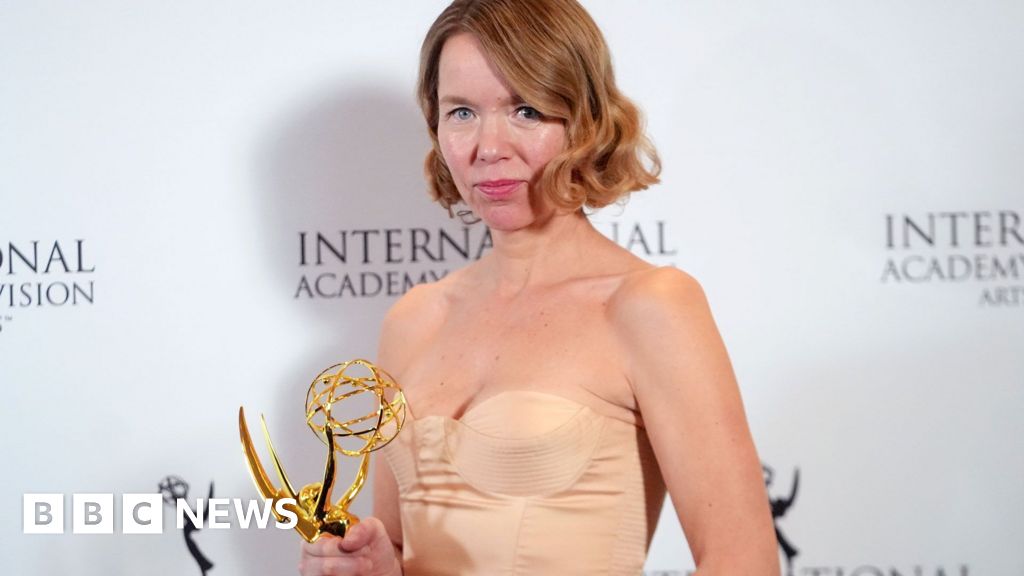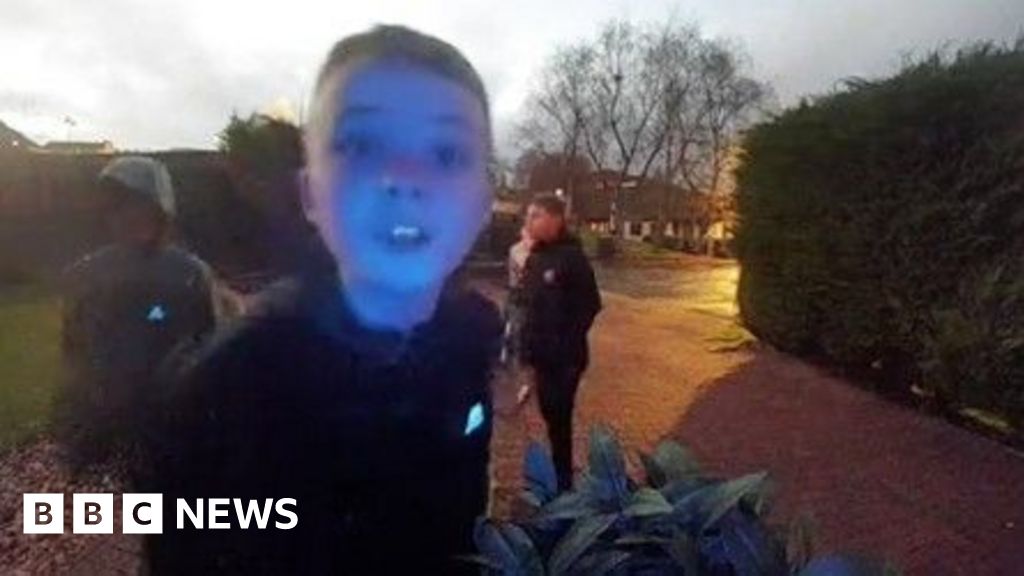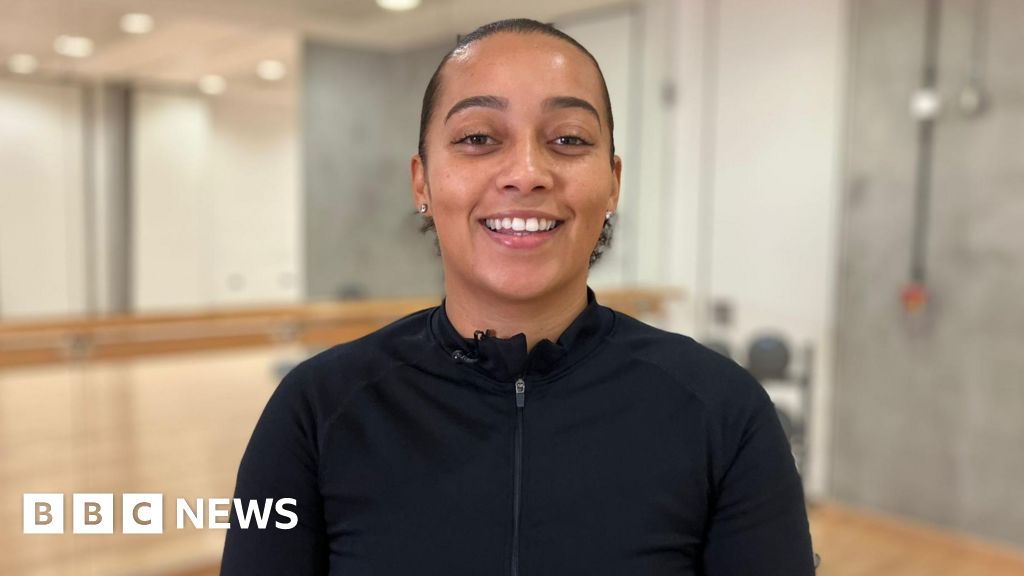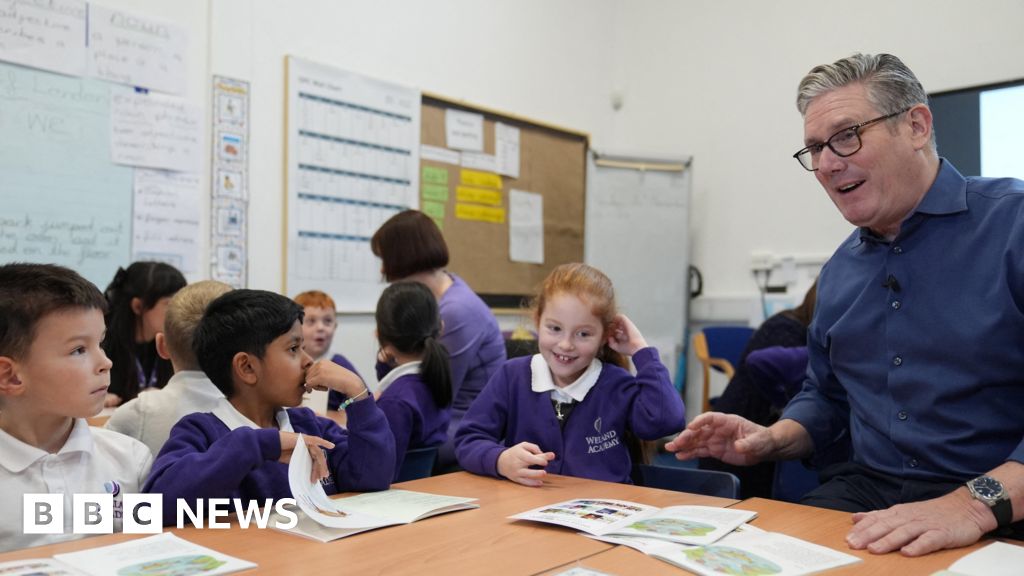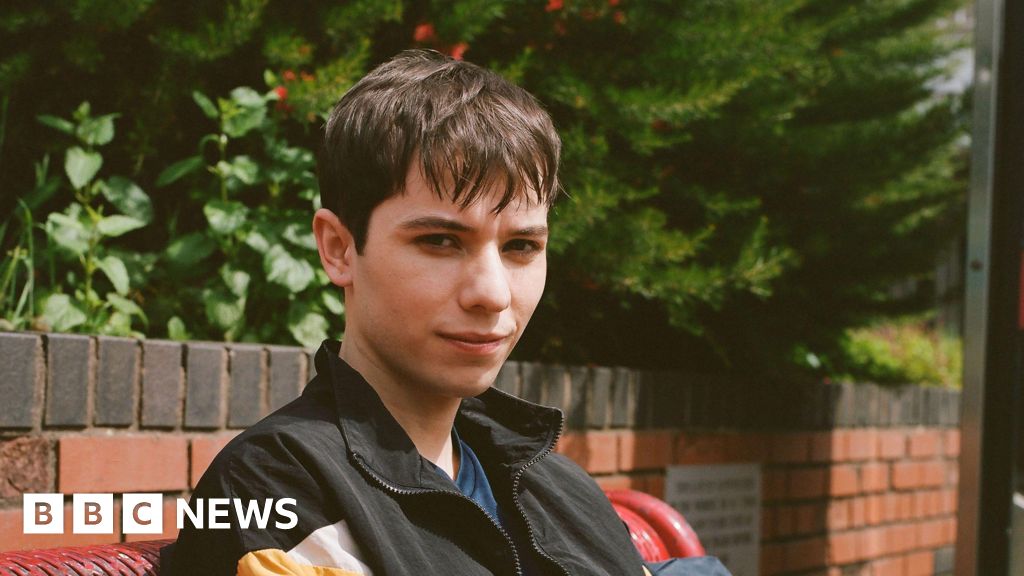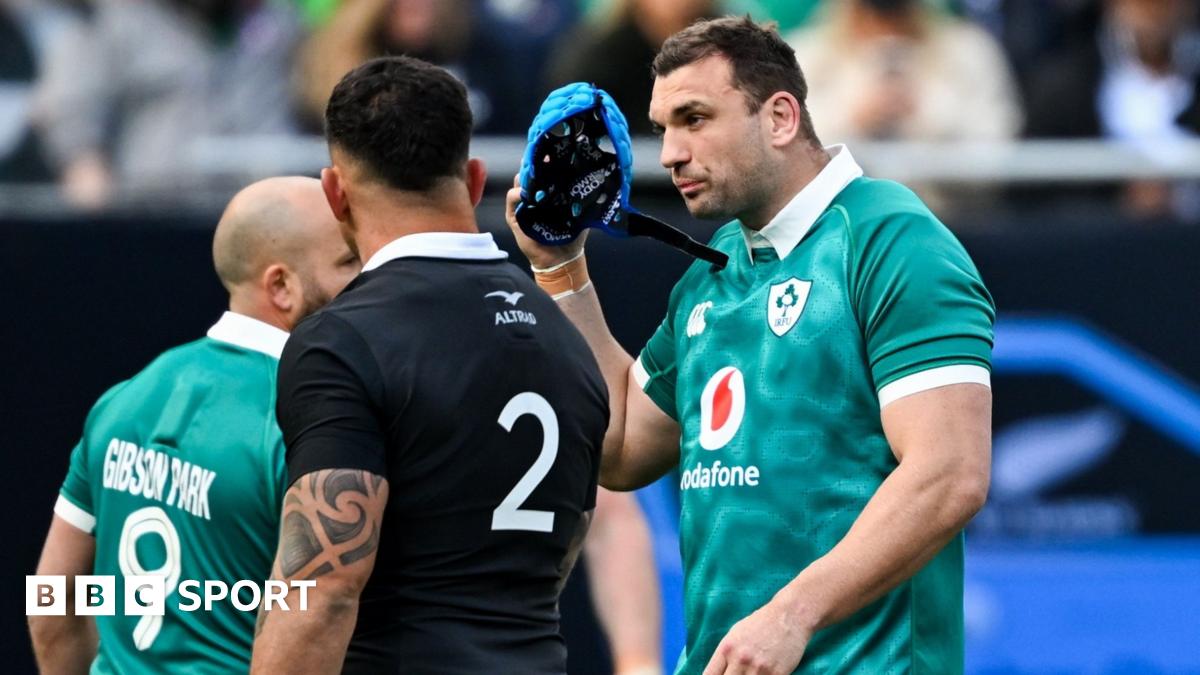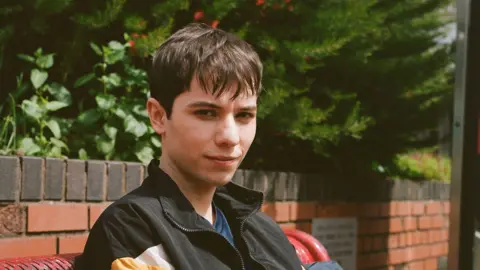 BBC/Hera/Enda Bowe
BBC/Hera/Enda BoweThe Liverpudlian actor says the course of his career changed when he got noticed online
"Don't wait for permission." That's rising star Ellis Howard's advice to young artists who are hoping to cut through.
The 28-year-old actor, from Liverpool, says the course of his career changed when a handful of Instagram videos helped him to secure a writing agent and a mentor.
His posts, discussing issues such as inequality, were what got him noticed.
"Do things on your own terms, for yourself and don't seek permission," he tells BBC Newsbeat.
"Just make the kind of art that you wanted to see growing up."
Ellis followed this path when he took on the lead role of 15-year-old Byron in the BBC Three teen drama, What It Feels Like For A Girl.
The series, inspired by the autobiography of trans writer, journalist and campaigner Paris Lees, follows a teenager from a working-class town near Nottingham as they wrestle with their gender identity.
The series, praised by some critics for being "raw" and "heartfelt", also drew attention to Ellis' talent.
He has now been named as one of 20 creatives on this year's Bafta Breakthrough list.
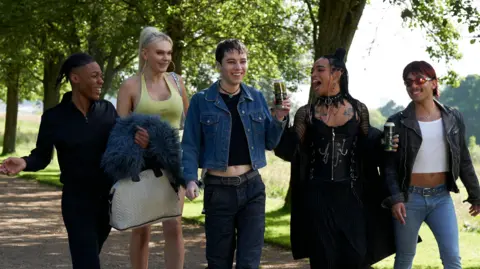 BBC/Hera/Enda Bowe
BBC/Hera/Enda BoweWhat It Feels Like For A Girl was inspired by the autobiography of trans writer and campaigner Paris Lees
The initiative, supported by Netflix, aims to spotlight people within gaming, TV and film who are on the verge or in the middle of a breakthrough moment.
Ellis says being included in the line-up "means everything" as it feels like "a stamp of approval" on his work. After receiving free arts training in Liverpool at Rare Studio, he secured a place at the Guildhall School of Music & Drama.
His past work also includes featuring in the 2022 BBC horror series Red Rose, and he later made his West End debut in Aaron Sorkin's adaption of To Kill A Mockingbird.
But he says being included in the Bafta list off the back of What It Feels Like For A Girl is particularly special for him, as he believes having representation of LGBTQ+ experiences on-screen is the "most important thing".
Ellis, who describes himself as working-class and queer, says the show is a "mirror" for those who can see themselves within the characters, while for others it is a "door into a community that they've never had access to before".
"I think it's really important to see yourself, to understand that your story is important, and that your life deserves dignity," he says.
Supreme Court ruling
The coming-of-age story was released just weeks after the Supreme Court ruled that the terms "woman" and "sex" in the 2010 Equality Act "refer to a biological woman and biological sex" in April this year.
The campaign group For Women Scotland had brought a case against the Scottish government arguing that sex-based protections should only apply to people who are born female. The Scottish government had argued in court that transgender people with a gender recognition certificate were entitled to the same sex-based protections as biological women - but it was defeated.
After the ruling, the judge stressed the law still gives protection against discrimination to trans people, but some campaign groups said it rolled back years of understanding.
There are concerns from some advocacy groups that there is a wider pushback against LGBTQ+ representation in entertainment.
A recent report by US-based organisation Glaad (Gay & Lesbian Alliance Against Defamation) found a "continual decline" in the number of LGBTQ+ characters on broadcast television, but an increase on streaming services.
Newsbeat has been told media watchdog Ofcom collects some diversity data on actors and presenters employed directly by broadcasters, but not on characters within shows.
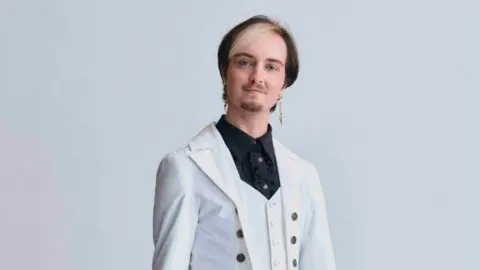 Bafta/Hollie Fernando
Bafta/Hollie FernandoStanley Baxton has created games which reflect some specific aspects of his life as a trans man
Also on the Bafta Breakthrough list this year is Stanley Baxton, a 26-year-old narrative game developer originally from Warrington.
He has created games which he describes as "satirical, horrifying or queer" and reflect specific aspects of his life as a trans man in the UK.
"You never see just a realistic, down-to-earth 'this is what trans people experience'," he says.
"It's often fluffier or a: 'Oh, we have a trans person in this, but we're not really gonna talk about it or talk about their experiences'."
In his previous job at a well-known UK game studio, Stanley says at least half of his team-mates were queer, but their personal experiences weren't often reflected in what they were making.
"If the games industry refuses to give us the perspective that we have, we just have to force it ourselves," he says.
"I feel like a slight remedy is the kind of stuff that I'm doing here."
A report released by Glaad last year found that less than 2% of games on major consoles and PC include LGBTQ+ characters, but nearly one in five active video game players identified as LGBTQ+.
Stanley hopes the Bafta Breakthrough initiative can draw more attention to the indie games space, where he believes better work is being done to explore and portray a diverse range of experiences.
"Work's being done, the camera's just pointed in the wrong direction," he says.
Also among this year's Bafta breakthrough cohort is Laura Carreira, the writer and director of On Falling, which follows a Portuguese warehouse worker in Scotland, Akinola Davies Jr, the director and co-writer of UK's international Oscar submission My Father's Shadow, and the casting producer behind Love is Blind UK series one, Vivian Eguridu.
Past Bafta Breakthrough artists include Oscar-nominated actress Florence Pugh, One Day's Ambika Mod and The Last Of Us star Bella Ramsey.

Listen to Newsbeat live at 12:45 and 17:45 weekdays - or listen back here.




